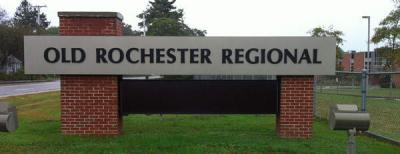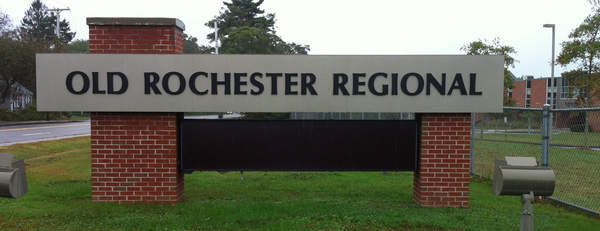Tri-town school nurses may soon be equipped with overdose reversal drug
In a preemptive strike against drug deaths, school administrators are working to equip all schools with naloxone, an overdose reversal medication.
More commonly known as Narcan, the treatment works as fast as one to three minutes to restore breath to a person exhibiting signs of an opiate-related overdose, and it can be the difference between life and death.
“We want to be proactive and reactive,” said Assistant Superintendent Dr. Elise Frangos.
As the state’s heroine epidemic has escalated, the need for Narcan has also skyrocketed. Tri-town ambulances are already equipped with Narcan and public health nurses in all three towns are also trained to use it.
So far, four of the five nurses in Marion, Mattapoisett and Rochester’s public schools have received training on use of the medication.
Frangos said many schools in the state have the reversal drug on hand. According to the Massachusetts Department of Public Health, she said 133 of 244 school districts in the state are outfitted with the overdose reversal medication or plan to be soon.
The move to equip school nurses in the tri-town with Narcan grew out of the Youth Risk Behavior Survey, given to junior high and high school students last year. The survey polled 924 students and found that 13 percent of junior high students and half of sophomores, junior and seniors had tried illegal drugs.
At the high school, prescription drugs accounted for 15 percent of illegal drug use, while cocaine and heroin made up 6 and 4 percent, respectively. Marijuana was, by far, the most prevalent at the high school at 47 percent.
In light of this data, which also included information about suicide, diet and bullying, the school district formed the Healthy Tri-town Coalition “to provide tri-town families with a foundation for lifelong health & wellness through collaboration with all community members.” The group includes school staff, parents and community members.
In November, the coalition voted to support Narcan in schools. Tri-town police chiefs have also endorsed the action.
“This just makes sense to me,” said Rochester Police Chief Paul Magee. “It doesn’t necessarily need to be a student. It could be anybody in that school building – during a sporting event, during a play – I don’t think it’s specifically targeted that we’re doing this for the students.”
Public health nurses in the towns also support Narcan in schools, said Frangos.
Next, Superintendent Doug White will speak with school physicians to ask for their support, after which each school committee will be educated on the purpose of Narcan in schools and asked to vote to approve it. If given the green light, the policy subcommittee would create procedures for use of Narcan in schools before it is purchased for school nurses.
“Our Narcan policy will need to be a vital, living document as it has the potential to save lives and avert tragedy,” Frangos said.
White said he hopes to have approval from school committees and a policy in place before the end of the school year.
The cost of Narcan is approximately $40 per dose, though there may be grants available to offset the cost. Frangos said only one dosage would likely be stored in each school at a time since it should be temperature controlled and loses potency over time.
Having Narcan in schools won’t eliminate the need for EMTs, but it would reduce the risk of death if someone overdoses while on campus.
Said Frangos, “We really do feel that time is of the essence because we don’t want to have any tragedy or potential tragedy. It’s really an opportunity to save lives.”
Ultimately, Frangos said the Healthy Tri-Town Coalition wants to engage the community about the opioid epidemic to prevent its spread.
“Collectively we do not want to experience the tragedies other communities are experiencing,” said Frangos. “But the opioid or substance misuse epidemic is washing up on our shores and quietly causing tragic circumstances.”












